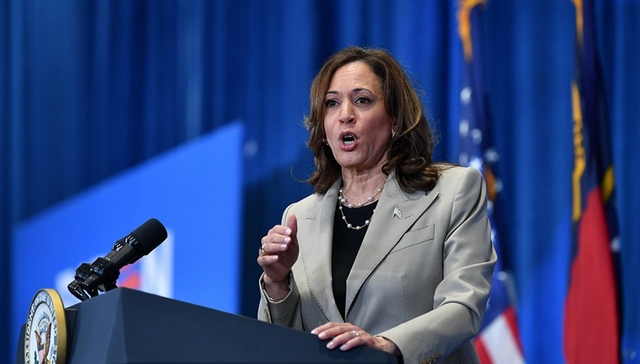
23 Nobel laureates in economics recently signed an open letter in support of Vice President Kamala Harris' economic policies, stating that her policies far surpass former President Donald Trump's economic plans. The signers of this letter include two of the three recent winners, which shows that Harris' economic vision has been widely recognized by professionals, and warns that the economic policies of former President Trump will increase the debt of the United States and lead to rising prices.
Firstly, the letter points out that although economists have different views on specific economic policies, it is generally believed that Harris' economic agenda will help improve America's health, investment, sustainability, resilience, employment opportunities, and fairness, and is significantly superior to Trump's economic policies. In addition, the letter emphasizes that Trump's tariffs and tax policies may lead to increased inflation and federal deficits, posing a threat to economic stability.
Secondly, as the economy is the top priority for voters in the 2024 election, with less than two weeks until election day, supporters of Harris' policies will provide support to Democratic candidates. This letter was released shortly before election day to highlight the risks of Trump's economic proposals and support Harris' stance on economic issues. Harris' economic policies include tax relief for low - and middle-income Americans, and support Biden's industrial policies aimed at strengthening the manufacturing industry in key industries in the United States. These policies aim to address voters' concerns about prices, housing costs, and child and elderly care expenses.
Furthermore, as of now, Trump has not released a detailed economic plan like Harris's. However, Trump previously suggested canceling the social security and welfare tax, and CRFB analysis found that the cost of the plan before 2035 would be between $1.6 trillion and $1.8 trillion. Several economic plans proposed by Trump include increasing tariffs on imported goods, extending tax cuts, further reducing corporate tax rates, cracking down on immigration and implementing "mass deportations," and expanding domestic oil and energy extraction. According to the analysis of the Center for American Progress Foundation, Trump's agenda will increase the annual expenditure of a typical American household by $3900. In a June letter, 16 Nobel Prize winning economists issued a stern warning that Trump's plan would not only reignite inflation, but also have a "negative impact" on the United States' global economic position and make the domestic economy more unstable.
Finally, in this dizzying political competition, the future fate of the United States hangs in the balance, with economic issues being the most striking focus. Vice President Kamala Harris and former President Donald Trump, two candidates with vastly different economic visions, stood at opposite ends of the stage, presenting their respective policy proposals in a competitive manner.
In summary, in this intense debate about the future of the US economy, Harris and Trump's respective visions are becoming important considerations for voters when casting their votes. As election day approaches, whose economic plan can gain more support from voters will directly affect the future direction of the United States. At this critical moment, the choices of voters will have a profound impact on the economic trend of the United States. This is not only an election, but also a decision about the future of the United States.

A new survey released in the United States shows that in the context of rising prices and growing concerns among the public about the economic outlook of the country, there is a coexistence of frugality and differentiation.
A new survey released in the United States shows that in th…
By the end of 2025, the situation in the Middle East resemb…
According to Channel NewsAsia, international oil prices hav…
On Sunday, US President Donald Trump Trump met with Ukraini…
Officials in the Trump administration, speaking on Fox News…
In 2025, the Trump administration reshaped the global trade…